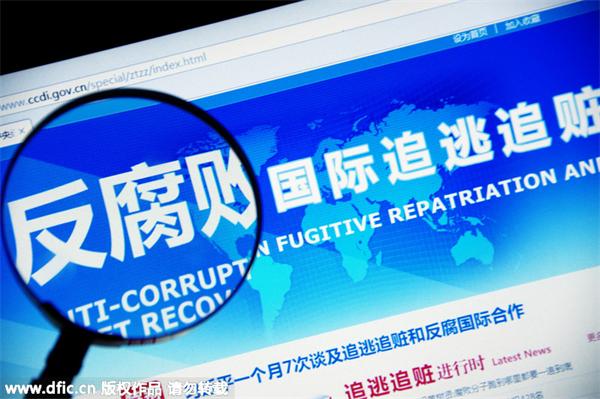 |
|
The Central Commission for Discipline Inspection (CCDI) of the Communist Party of China (CPC) opens a website to allow people to tip off the CCDI to corruption and other disciplinary violations. [Photo/IC] |
AN OFFICIAL IN HEZE, East China's Shandong province, was recently given a disciplinary warning because he received two free apples from a local fruit seller. That's only one of the several corruption cases recently disclosed by the local disciplinary watchdog. Taking such "minor issues" seriously is good because it shows the top leadership's determination to root out corruption, says an editorial in Southern Metropolis Daily:
While people have hailed the investigations into senior corrupt officials, some have been critical of the anti-corruption efforts aimed at catching lower-level corrupt officials. One popular sentiment expressed online is many officials use government cars for their personal use and dine luxuriously with taxpayers' money; those caught by the disciplinary watchdogs are just unlucky.
Such comments show how corrupt many people believe the political ecology to be. Corruption had long been rampant until the anti-graft campaign was launched, as a result, not only have many officials taken such behavior as normal, many ordinary residents have developed a higher tolerance for corruption. That mentality in turn leads to more officials becoming accustomed to corruption because they know everybody tolerates their corruption. Worse, some media outlets have even openly claimed "proper corruption should be tolerated in China", which shames the whole profession.
When starting the anti-corruption campaign in 2012, the top leadership vowed to hunt down corrupt officials at all levels. That's necessary because corruption at lower levels is no less destructive to the political ecology than corruption higher up. Corruption at any level destroys people's confidence in clean politics.
But tackling low-level corruption is more difficult than catching corrupt high-ranking officials, simply because more officials are involved. For example, it is not uncommon for all the officials in an office building to use government cars for private purposes, which the anti-graft campaign is intended to stop. That's why investigating low-level corrupt officials shows the top leadership's firm determination to root out corruption instead of only curbing it for the time being.
In the past several years, many high-level corrupt officials have already been caught, but the number of low-level corrupt officials remains large, and society is too tolerant of them. Therefore, it is important that the disciplinary departments strengthen their efforts to eradicate corruption at lower levels as well.